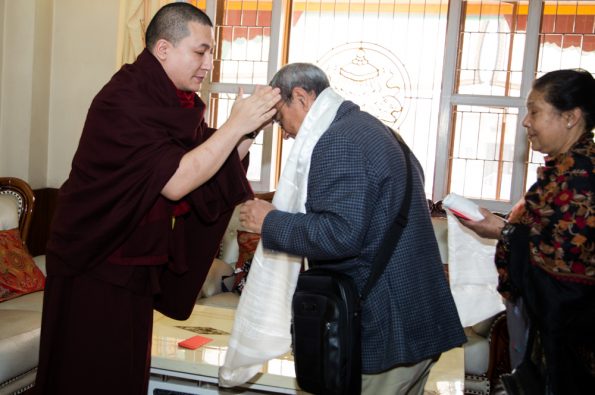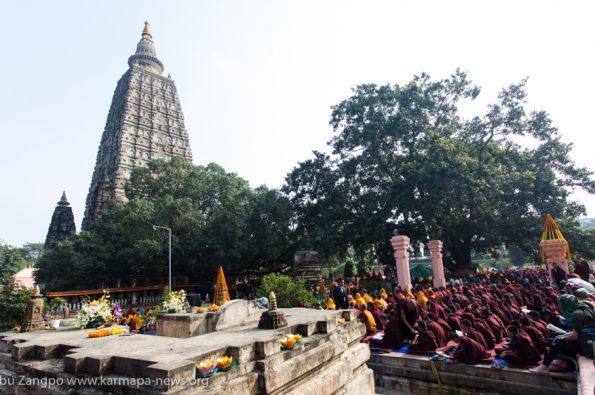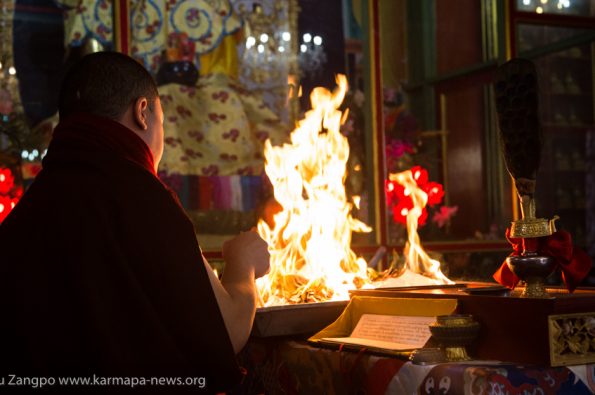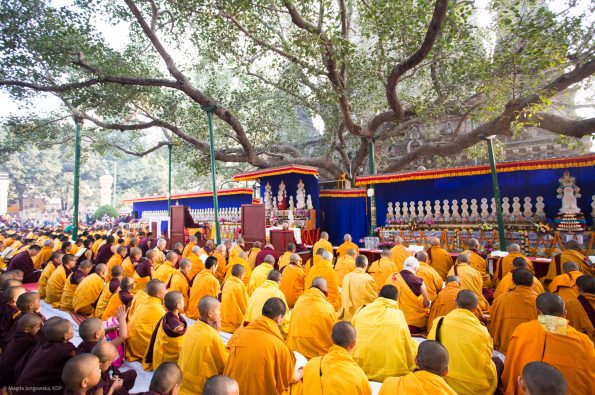His Holiness Gyalwa Karmapa visits London, England
The arrival of His Holiness the 17th Gyalwa Karmapa on the 8th of June, 2007 would be a prophetic sign of the days to come. Immediately after reaching the London Heathrow airport and receiving a joyous welcome at the exit gate, it was off to the Hotel for a private interview with Michael Binyon, a prominent UK journalist, to discuss many topics that would later find their way into The Times of London. This would be the first of many articles focused on His Holiness’ activities in London and the rest of the World.
The next morning, Karmapa Thaye Dorje met with the UK sangha at the Friend’s Meeting House, an aptly titled venue where the remainder of His Holiness’ activities would be held over the next two days and where many years before the 16th Karmapa had given the Black Crown Ceremony. The meeting included an interesting power point presentation which had, among many other fascinating topics of interest, a scientific study made by students over the past year recording the quality of life people have reported after completion of the preliminary practices in different phases. Following the explanations from each UK center about their growth and goals set or achieved, His Holiness gave his advice and gratitude for those who had taken the time out of their busy schedules to be a part of the coming day’s events. “The progress is amazing,” His Holiness said. “I know it is difficult. You are all contributing in your own ways. We try to accumulate merit, develop our own positive mind and do for others as well. What you are doing is the motivation and activity of generosity. You all are doing a very fine practice. Develop bodhicitta. We have great circumstances so we should do our best.”
Afterwards, His Holiness Trinley Thaye Dorje did a charity photo shoot to support “Wallace and Gromit’s Children’s Foundation”, which raises funds to help improve the quality of life of sick children in hospitals and hospices across the UK.
That evening Karmapa Thaye Dorje explained the essence of bodhicitta along with the bodhisattva promise and an oral transmission of The Mahamudra Prayer composed by the 3rd Karmapa Rangjung Dorje. He prefaced his teaching with praises for the life’s work of the late Hannah Nydahl. Giving advice for practice and the burdens of daily life, Karmapa said, “We are here to do our best to contribute towards the society we live in. This is only possible through Loving Kindness and Compassion. We are all the same, in that we live in this realm of Human existence. I say we are all the same because we all have the same quality of Buddha Nature. Without nurturing it in a proper way, its ability ceases to shine. Dharma is nothing new. We did not create it. It is something very natural. Buddhism is only a name used in our relative existence.” He went on to explain the qualities of a bodhisattva and how, without mindfulness, Compassion and Loving Kindness can become corrupted by our own selfish needs. His Holiness pointed out the ways compassion manifests naturally in our daily lives and how this shows that our true nature is of a different substance than that which is generated through our desires and attachments. He concluded by reminding everyone of how truly rare and precious this Human existence is.
The following night Karmapa Thaye Dorje gave the empowerment of White Tara. That evening His Holiness’ throne was adorned with the same brocade that had been used by the Karmapas since the 5th Karmapa Deshin Shekpa. His Holiness noted, “This (White Tara) has been my practice for as long as I can remember. It is a practice to generate genuine Loving Kindness and Compassion.” His Holiness concluded the Empowerment that evening by expressing his gratitude to everyone for these “two wonderful days”. He reminded everyone to be sure to dedicate the merit they had accumulated over these days for the benefit of all sentient beings




